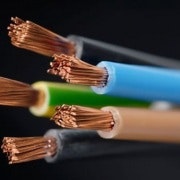TECHNOLOGY SPECTATOR: Unmasking the NBN illusionists
In a debate as nakedly partisan as that over the national broadband network, things are bound to get out of hand on occasion. That's simply the nature of the beast, however, and as the NBN fights for its survival things are getting worse.
In fairness it has to be said that those opposed to the NBN are still, on balance, the worst offenders when it comes to spouting highly misleading or just plain inaccurate information regarding the project. I won't bore you with the gory details but let's briefly review some of the ‘greatest hits' of the NBN opponents these last couple of years:
– We don't need the NBN when wireless can do the job much cheaper;
– The NBN will be a ‘white elephant' with ‘outdated' technology when finished;
– You will have to pay thousands of dollars to have your house re-wired for the NBN;
– Gardens all over Australia will be destroyed as NBN contractors build the network.
That's without getting to my own personal favourite, which came from conservative columnist Andrew Bolt when appearing on ABC's Insiders last November:
"In Hong Kong they have just unveiled a new broadband scheme delivered by satellite. As we go on, every year, every technological development on that front – and there will be more, you know, that in six months you will hear another announcement like this and then another – it makes this thing [NBN] less and less profitable.”
Yes, that's right, Hong Kong – the most heavily fibred market in the world – was supposedly launching a new satellite broadband service. Talk about selling oil to the Saudis!
I think we can safely say that while Bolt may be a superb polemicist he knows as much about broadband technology as Bob Carr does about the art of leg-spin bowling.
Now, all this nonsense has been extremely frustrating and most of it has come from opponents of the NBN. But in recent weeks the NBN's own supporters have been getting far too casual with the truth themselves.
Two examples that come to mind immediately are the fibre rollouts in Britain and France, which have been grossly misrepresented by NBN supporters to try and put weight behind their push for an 'all fibre to the premises' solution for the NBN.
When French president Francois Hollande announced last week that the French government was spending €25 billion ($31 billion) on deploying fibre in the country, the news was immediately pounced on by NBN supporters that France was following Australia's lead and deploying an FTTP-based NBN, and NBN Co. itself even posted this blog announcing that France was "choosing" FTTP.
The truth here is simple. France is absolutely not deploying an all-FTTP NBN as is being rolled out in Australia. They are actually doing something quite different.
How do I know this? Well, firstly anyone who thinks you can roll nationwide FTTP in France to 27 million homes for €25 billion, when Deutsche Telekom has estimated deploying FTTP to 40 million German homes would cost €100 billion, hasn't really done their homework.
Second, I contacted a friend of mine who runs a specialist and well regarded FTTP consultancy in Europe and asked him what the deal was with the announcement by Hollande.
"I've read the most ludicrous reporting on what is seen here as a small announcement by Hollande regarding fibre,” he replied.
"What this is not is the government forking out €25 billion to deploy FTTP nationwide.
"Very roughly, the scheme involves private operators, local government and national government co-investing in extending the [fibre] deployment to 95 per cent of homes – but this excludes the cost of last-mile drops.”
So, France is not actually doing FTTP at all. They are paving the way for it, that's true – but that is very different to actually committing funds to a full nationwide FTTP rollout, as some have claimed.
The second part of my problem is with the way that NBN supporters are disparaging the BT FTTN rollout in the UK, with many bloggers and tweeters arguing that the BT Infinity project had been a failure and that ‘Britain' was now considering deploying FTTP instead.
This really is an outrageous lie, plain and simple, there is no other way to put it. BT is well on the way to deploying FTTN to around two-thirds of UK homes, even by the end of December it had passed some 13 million homes and already had 1.25 million FTTN subscribers.
While the company has launched FTTP in some areas and has made FTTP available on-demand in others, there is simply no plan whatsoever to roll universal FTTP. The vast bulk of the network will be FTTN and BT certainly does not regret its decision to choose FTTN over FTTP.
In fact, BT is using the money it saved by not going for a much more expensive FTTP rollout to invest in content for its BT Vision IPTV service, which it hopes to take on Sky in the lucrative UK pay TV market.
With the NBN debate still having a long way to run yet, and with a bitterly contested federal election screaming into view, we will no doubt be hearing more nonsense spouted from both sides of the debate and it is likely a forlorn wish for facts to be treated with a little more care – but here's hoping, anyway.
Tony Brown is a senior analyst with Informa Telecoms & Media. He is a key member of the Broadband and Internet Intelligence Centre team, covering the broadband and Internet markets of the Asia Pacific region.













